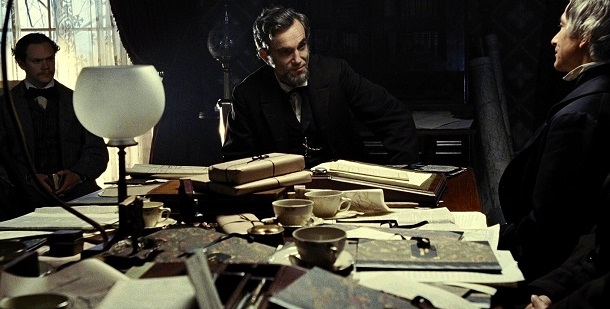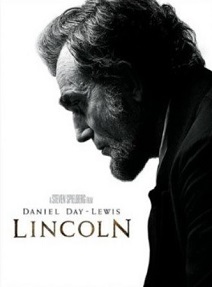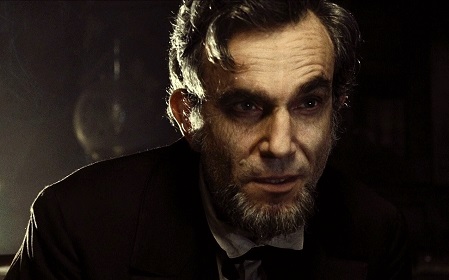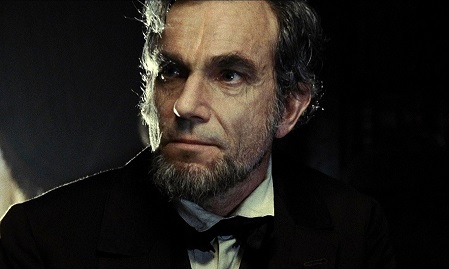
|
American Rhetoric: Movie Speech "Lincoln" (2012)
President Lincoln Defends His Wartime Policies and the 13th Amendment
President Lincoln: I decided that the Constitution gives me war powers but no one knows just exactly what those powers are. Some say they don't exist. I don't know. I decided I needed them to exist to uphold my oath to protect the Constitution. Which I decided meant I could take the Rebels' slaves from them as property confiscated in war. That might recommend to suspicion that I agree with the Rebs that their slaves are property in the first place. Of course, I don't. Never have. I'm glad to see any man free, and if calling a man property or war contraband does the trick, why I caught at the opportunity. Now here's where it gets truly slippery. I use the law allowing for the seizure of property in a war knowing it applies only to the property of governments and citizens of belligerent nations. Well, the South ain't a nation. That's why I can't negotiate with them. So if, in fact, the Negroes are property, according to the law, have I the right to take the Rebels' property from them, if I insist they're rebels only and not citizens of a belligerent country? And slipperier still, I maintain it ain't our actual Southern states in rebellion but only the rebels living in those states, the laws of which states remain in force. "The laws of which states remain in force." That means that since it's states' laws that determine whether Negroes can be sold as slaves, as property, the federal government doesn't have a say in that. At least not yet. Then Negroes in those states are slaves, hence property, hence my war powers allow me to confiscate them as such, so I confiscate them. But if I'm a respecter of states' laws, how then can I legally free them with my Proclamation as I done? Unless I'm canceling states' laws? I felt the war demanded it. My oath demanded it. I felt right with myself, and I hoped it was legal to do it. I'm hoping still.
Two years ago, I proclaimed these people emancipated. "Then, thenceforward and forever free." Now let's say the courts decide I had no authority to do it. They might well decide that. Say there's no amendment abolishing slavery, say it's after the war and I can no longer use my war powers to just ignore the courts' decisions like I sometimes felt I had to do. Might those people I freed be ordered back into slavery? That's
why I'd like to get the 13th Amendment through the House, on its way to
ratification by the states. Wrap the whole slavery thing up, forever and
aye, as soon as I'm able. Now! End of this month. And I'd like you to
stand behind me like my Cabinet's most always done. As the preacher
said, "I could write shorter sermons, but once I start, I get too lazy
to stop." James Speed: Dictators aren't susceptible to law.
John Usher: Neither is he. He just said
as much. Ignoring the courts? Twisting meanings? What reins him in
from... From... I gave them a year and a half to think about it, and they re-elected me.
And come February the first, I intend to sign the 13th Amendment!
|
|
© Copyright 2001-Present. |



